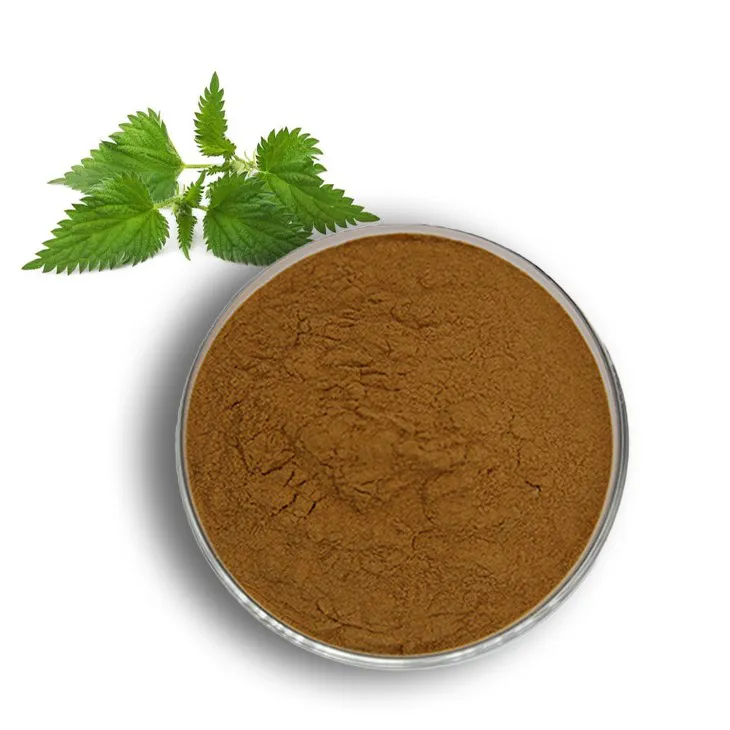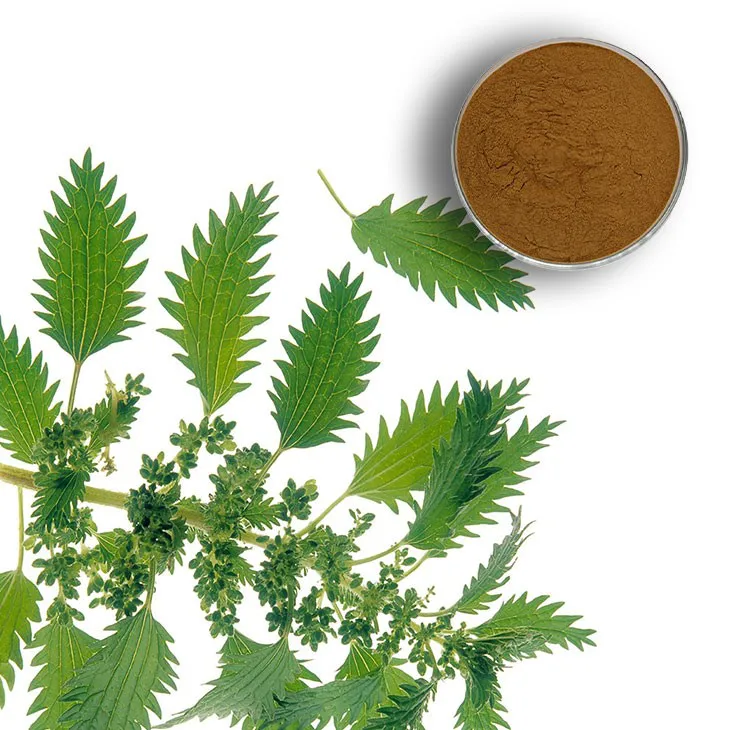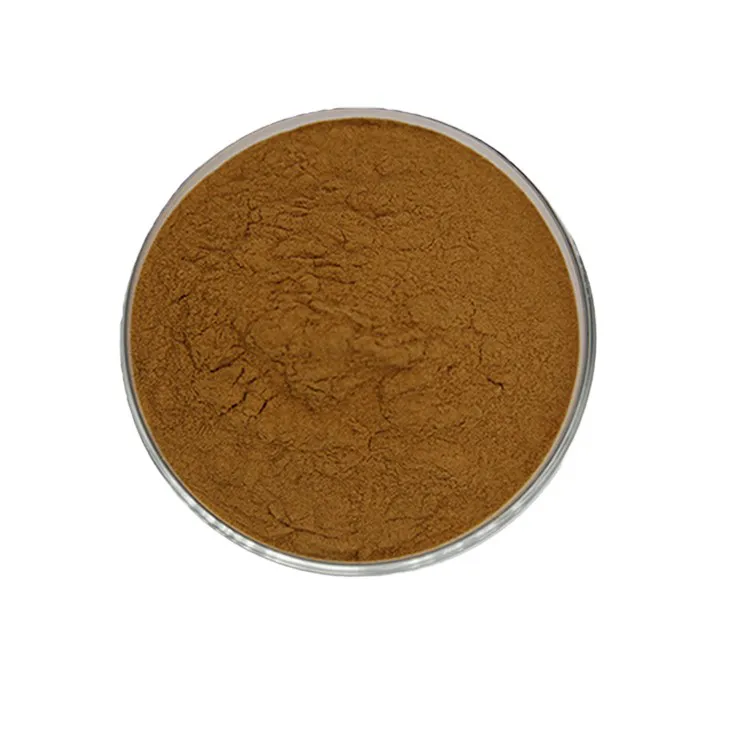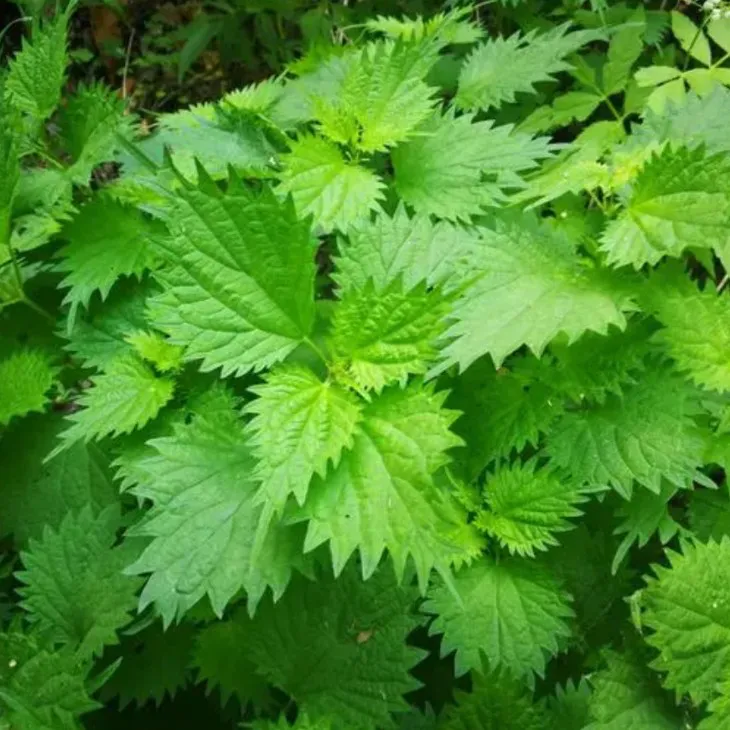- 0086-571-85302990
- sales@greenskybio.com
Nettle Root Extract: Nature's Best - Kept Secret.
2024-11-12

Introduction
Nettle Root Extract is a remarkable natural substance that has been somewhat overlooked in mainstream discussions, yet it holds a wealth of potential benefits. It is like a hidden gem waiting to be fully explored and understood. Nettle root, botanically known as Urtica dioica, has a long history of use in various traditional medicine systems around the world.

The Composition of Nettle Root Extract
Bioactive Compounds
Nettle Root Extract is rich in a variety of bioactive compounds. One of the key components is lectins. These are proteins that have the ability to bind to specific carbohydrates on cell surfaces. Another important group of compounds are polyphenols. Polyphenols are known for their antioxidant properties. They help in scavenging free radicals in the body, which can otherwise cause damage to cells and contribute to various diseases.Additionally, nettle root extract contains flavonoids. Flavonoids are a type of polyphenol and are associated with anti - inflammatory effects. For example, Quercetin, a flavonoid present in nettle root, has been studied for its ability to reduce inflammation in the body.
There are also minerals such as iron, calcium, and magnesium in nettle root extract. Iron is crucial for the formation of hemoglobin in red blood cells, which is responsible for transporting oxygen throughout the body. Calcium is essential for strong bones and teeth, and magnesium is involved in many enzymatic reactions in the body.

Anti - Inflammatory Properties
The Mechanism Behind Anti - Inflammation
The anti - inflammatory properties of nettle root extract are due to several factors. As mentioned earlier, the presence of flavonoids plays a significant role. These compounds can inhibit the production of pro - inflammatory cytokines. Cytokines are small proteins that are involved in cell signaling, and when there is an overproduction of pro - inflammatory cytokines, it can lead to chronic inflammation.Nettle root extract also has the ability to modulate the immune system. It can help in reducing the activity of immune cells that are involved in the inflammatory response. For example, it can regulate the function of macrophages, which are cells that engulf and digest foreign substances in the body. If macrophages are over - activated, they can release substances that cause inflammation.
Applications in Inflammatory Conditions
This anti - inflammatory nature of nettle root extract makes it potentially useful in treating various inflammatory conditions. For instance, in arthritis, which is characterized by joint inflammation, nettle root extract may help in reducing pain and swelling. There have been some studies suggesting that topical application of nettle root extract can provide relief in cases of arthritis.Inflammatory bowel diseases such as Crohn's disease and ulcerative colitis could also potentially benefit from nettle root extract. These diseases are associated with chronic inflammation in the digestive tract. Nettle root extract, with its anti - inflammatory and immunomodulatory effects, may help in reducing the inflammation in the gut and improving the overall condition of the patients.

Hormonal Regulation Benefits
Effect on Testosterone
Nettle root extract has shown potential in hormonal regulation, particularly in relation to testosterone. In men, it may help in maintaining healthy testosterone levels. It does this by binding to sex - hormone - binding globulin (SHBG). SHBG is a protein that binds to testosterone and reduces its bioavailability. By binding to SHBG, nettle root extract can potentially increase the amount of free testosterone in the body. This can have implications for male health, including maintaining muscle mass, bone density, and sexual function.Benefits for Women's Hormonal Health
In women, nettle root extract may also play a role in hormonal balance. It can help in regulating the menstrual cycle. Some women experience irregular menstrual cycles due to hormonal imbalances. Nettle root extract, with its ability to interact with the hormonal system, may help in normalizing these cycles. Additionally, it may also be beneficial in reducing symptoms associated with menopause, such as hot flashes and mood swings.
Traditional Medicine Use
Use in European Traditional Medicine
In European traditional medicine, nettle root has been used for centuries. It was often used as a diuretic, helping the body to get rid of excess water. This was thought to be beneficial in cases of fluid retention and certain kidney disorders. It was also used topically to treat skin conditions such as eczema and psoriasis. The sting of the nettle plant was believed to have a counter - irritant effect, which could help in relieving pain and inflammation in the skin.Use in Asian Traditional Medicine
In Asian traditional medicine, particularly in traditional Chinese medicine, nettle root was used in herbal formulations. It was considered to have properties that could tonify the blood and expel wind - dampness. This was related to its potential effects on the circulatory system and its ability to relieve joint pain and stiffness. In Ayurvedic medicine in India, nettle root was used for similar purposes, including treating rheumatism and improving digestion.Modern Scientific Research
Current Research Areas
Modern scientific research on nettle root extract is expanding. One area of focus is its potential as an anti - cancer agent. Some studies have suggested that the bioactive compounds in nettle root extract may have anti - proliferative effects on cancer cells. For example, in vitro studies have shown that certain components of nettle root extract can inhibit the growth of prostate cancer cells.Another area of research is its effect on the cardiovascular system. Nettle root extract may help in reducing blood pressure. It could potentially do this by relaxing the blood vessels. There are also studies looking at its role in improving lipid profiles, such as reducing cholesterol levels.
Challenges in Research
However, there are also challenges in researching nettle root extract. One of the main challenges is the standardization of the extract. Different extraction methods can result in extracts with varying compositions and potencies. This makes it difficult to compare the results of different studies. Additionally, more in - vivo studies are needed to confirm the findings from in - vitro studies. There is also a need for long - term studies to fully understand the safety and efficacy of nettle root extract.Potential Applications in Health
Urinary Tract Health
Nettle root extract may be beneficial for urinary tract health. Its diuretic properties can help in flushing out bacteria from the urinary tract, reducing the risk of urinary tract infections. It may also help in reducing inflammation in the urinary tract, which can be beneficial for people with conditions such as interstitial cystitis.Allergy Relief
Some people believe that nettle root extract can provide relief from allergies. This may be due to its anti - inflammatory properties. Allergies are associated with an overactive immune response and inflammation. Nettle root extract may help in modulating this immune response and reducing the symptoms of allergies, such as sneezing, itching, and runny nose.Potential Applications in Beauty
Hair Health
In the realm of beauty, nettle root extract has potential applications for hair health. It may help in promoting hair growth. This could be related to its effect on circulation. By improving blood flow to the scalp, it can supply more nutrients to the hair follicles, which are essential for hair growth. It may also help in reducing hair loss. Some hair loss conditions are associated with hormonal imbalances, and as nettle root extract can play a role in hormonal regulation, it may be beneficial in this regard.Skin Health
For skin health, nettle root extract can be used in skincare products. Its anti - inflammatory and antioxidant properties can help in protecting the skin from damage. It can reduce inflammation in skin conditions such as acne and rosacea. Additionally, it may help in improving the overall texture and appearance of the skin by promoting collagen production.Conclusion
Nettle root extract is truly a nature's best - kept secret. It has a rich composition of bioactive compounds that contribute to its various potential benefits. From its anti - inflammatory properties to hormonal regulation and its traditional and modern uses, it holds great promise. However, more research is needed to fully unlock its potential. As we continue to explore this natural extract, it may become an important part of our approach to health, beauty, and well - being.
FAQ:
What are the main bioactive compounds in nettle root extract?
Nettle root extract contains various bioactive compounds. Some of the main ones include lignans, polysaccharides, and phenolic compounds. Lignans are known for their potential antioxidant and hormonal regulation properties. Polysaccharides may contribute to its anti - inflammatory effects, and phenolic compounds often have antioxidant and anti - inflammatory activities as well.
How does nettle root extract show anti - inflammatory properties?
The anti - inflammatory properties of nettle root extract can be attributed to several factors. The presence of phenolic compounds, for example, can inhibit the production of inflammatory mediators in the body. These mediators are substances that are released during the inflammatory response and can cause pain, swelling, and redness. By reducing their production, nettle root extract helps to dampen the inflammatory process.
What are the potential hormonal regulation benefits of nettle root extract?
The lignans in nettle root extract are thought to play a role in hormonal regulation. They may have an effect on androgen receptors in the body. In men, this could potentially help in maintaining healthy prostate function by modulating the action of hormones like testosterone. In women, it may also have some influence on hormonal balance, although more research is needed to fully understand these effects.
How has nettle root extract been used in traditional medicine?
In different cultures, nettle root extract has been used in various ways in traditional medicine. In some European traditions, it has been used to treat urinary tract problems, such as inflammation or difficulty in urination. In other cultures, it has been used topically for skin conditions like eczema and psoriasis, possibly due to its anti - inflammatory and antioxidant properties.
What are the potential applications of nettle root extract in health?
Nettle root extract has potential applications in multiple areas of health. As mentioned, it may be beneficial for prostate health in men. It could also potentially help in reducing inflammation in conditions like arthritis. Additionally, its antioxidant properties may contribute to overall cardiovascular health by protecting cells from oxidative stress. However, more research is still needed to confirm these potential health benefits.
Related literature
- The Bioactive Compounds of Nettle Root Extract and Their Health Implications"
- "Traditional Use and Modern Research of Nettle Root Extract"
- "Nettle Root Extract: Unraveling the Mysteries of Hormonal Regulation"
- ▶ Hesperidin
- ▶ Citrus Bioflavonoids
- ▶ Plant Extract
- ▶ lycopene
- ▶ Diosmin
- ▶ Grape seed extract
- ▶ Sea buckthorn Juice Powder
- ▶ Fruit Juice Powder
- ▶ Hops Extract
- ▶ Artichoke Extract
- ▶ Mushroom extract
- ▶ Astaxanthin
- ▶ Green Tea Extract
- ▶ Curcumin
- ▶ Horse Chestnut Extract
- ▶ Other Product
- ▶ Boswellia Serrata Extract
- ▶ Resveratrol
- ▶ Marigold Extract
- ▶ Grape Leaf Extract
- ▶ New Product
- ▶ Aminolevulinic acid
- ▶ Cranberry Extract
- ▶ Red Yeast Rice
- ▶ Red Wine Extract
-
Maitake Mushroom Extract
2024-11-12
-
Chaste Berry Extract
2024-11-12
-
Lotus leaf extract
2024-11-12
-
Sophora Japonica Flower Extract
2024-11-12
-
Kelp Extract Powder
2024-11-12
-
Hops Extract
2024-11-12
-
Clove Powder
2024-11-12
-
Senna Leaf Extract
2024-11-12
-
Sugarcane Extract
2024-11-12
-
White Willow Bark Extract
2024-11-12





















